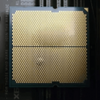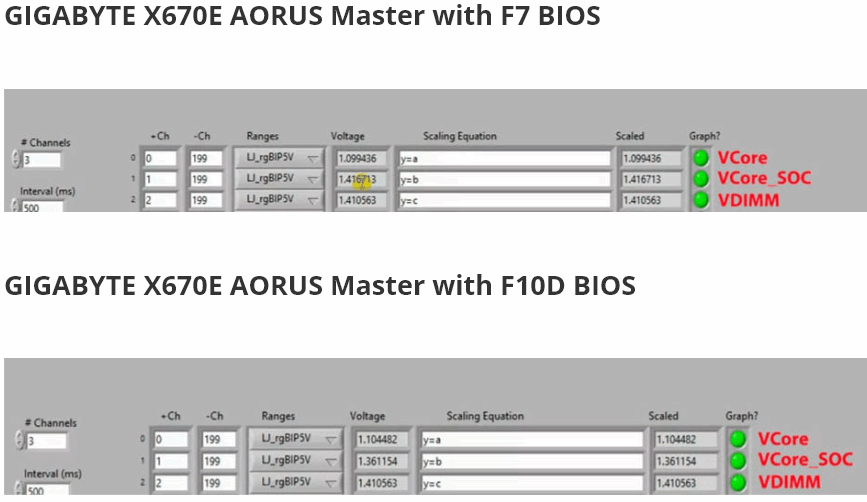Both companies have introduced updated BIOS versions that set a maximum voltage configuration of 1.3v. However, neither has successfully kept the processor within this specified limit.
GIGABYTE and ASUS confront similar challenges regarding voltage limitations on AMD Ryzen 7000 processors, which may lead to CPU and motherboard burnoutIt's important to emphasize that the 1.3v limit is established by AMD to avert damage to their processors. Initially, it was assumed that only Ryzen 7000 X3Ds, featuring the 3D V-Cache memory chip, were impacted. However, further investigation revealed that Ryzen 7000 models without this extra memory were also affected.
Despite releasing new BIOS versions to tackle the voltage issue, both ASUS and GIGABYTE have failed to provide a satisfactory solution. ASUS faced considerable backlash, particularly for launching a Beta BIOS intended to address the problem. Complicating matters further, the company cautioned that installing a Beta BIOS might void the warranty. Following complaints, ASUS withdrew this warning, admitting the inconsistency of suggesting a remedy that results in warranty loss without effectively solving the problem.
A recent assessment by Hardware Busters shows that ASUS is not the only company falling short in providing an adequate solution. GIGABYTE X670E AORUS Master motherboards experience the same problem. When using memory with AMD EXPO technology enabled, the motherboard delivers voltages surpassing the 1.3v limit, posing a risk of temperature-related issues and potential damage to the CPU.
Tests on this specific motherboard revealed a safe voltage of 1.04v when EXPO technology was disabled. However, enabling this technology led to problems, with voltages climbing as high as 1.416v during stress tests like Prime95 using the older F7 BIOS. Even with the updated F10D BIOS, promoted as a solution to the Ryzen 7000 voltage limitation, the safe 1.3v threshold was still exceeded, reaching 1.361v. As a result, the usefulness of BIOS updates as fixes for the Ryzen 7000 voltage issue remains dubious.
AMD Ryzen 7000 Voltage Issues Persist for GIGABYTE and ASUS Motherboards Despite BIOS Updates


